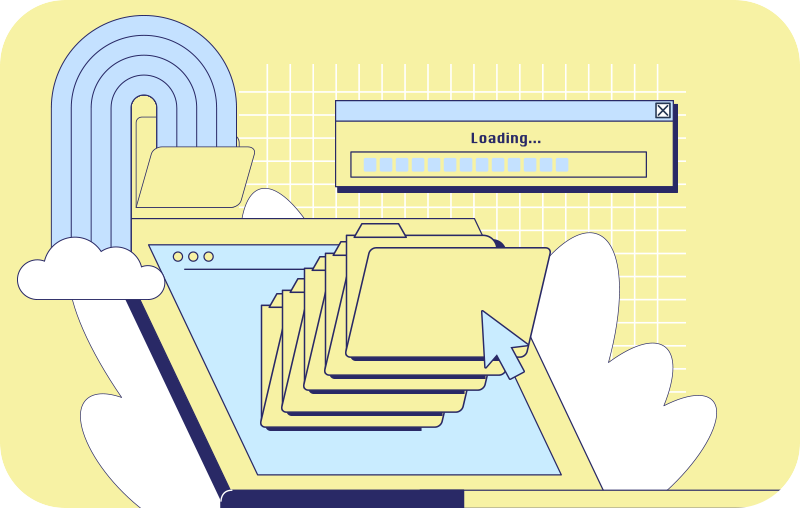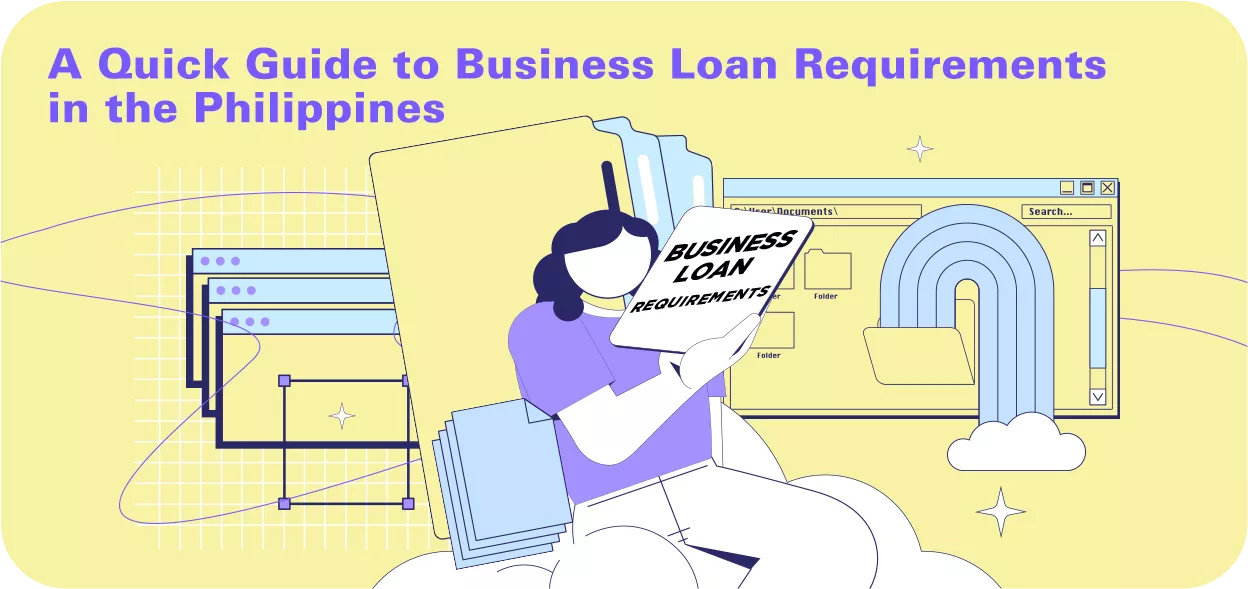Picture this: You’re at home on a Saturday night, just chilling with family and friends. Then, out of the blue, you come up with an idea for a business. It’s so good, it makes you wonder why you haven’t thought of or done it yet. Then you remember your not-so-impressive savings and the bills that take up a big chunk of your monthly salary. “Oh, right,” you say to yourself, “that’s why.”
We’re willing to bet the interest we earned from our Tonik Time Deposit (shameless plug alert – each Tonik user is entitled to one Time Deposit at 6% p.a. for 6 months!) that this has happened to you before, and not just once. You’ve probably lost count of all the business opportunities you’ve missed out on because of your financial reality.
Well, we’re here to tell you that you have a fighting chance to start that dream business of yours with the help of a business loan! To refresh your memory, business loans are financial services that you can use to borrow cash to fund your business.
However, lenders of business loans are not genies. These loans come with a price and – you guessed it – requirements. Navigating the loan application process can be daunting, as financial institutions have specific criteria to assess borrowers' eligibility.
Fear not, though, because in this blog, we will walk you through the essential requirements, eligibility criteria, and valuable tips to increase your chances of obtaining a business loan in the Philippines!
Table of Contents
- Business Loan Landscape in the Philippines
- General Eligibility Criteria for Business Loans
- Document Requirements for Business Loans
- Credit Score and its Impact on Loan Approval
- The Role of Collateral in Business Loans
- The Loan Application Process in the Philippines
- Tips for a Successful Business Loan Application
- Conclusion

TOC
Business Loan Landscape in the Philippines
Business loans aren’t just available through one type of lender. In the Philippines, we actually have a diverse set that you can choose from, each with their own unique benefits and application processes!
- Traditional Banks - They offer a wide range of loan products, including term loans, working capital loans, and business credit lines. While the application process with traditional banks can run at a snail’s pace, a lot of borrowers go to them for financial help because of their established reputations. After all, it’s easier to go to a tried and tested bank that your parents or maybe even your parents’ parents have relied on for who knows how long!
- Digital Banks – Hey, that’s us! These banks operate online, often through loan apps you can access through your smartphone. Since most of them are purely digital, they streamline the loan application process, providing more convenience for borrowers. Application tends to be faster as they leverage technology to assess creditworthiness and may offer innovative loan products tailored to the needs of small and medium-sized enterprises (SMEs).
- Microfinance Institutions - These institutions offer smaller loan amounts and more flexible repayment terms, making them accessible to individuals who may not meet the requirements of larger financial institutions. MFIs focus on promoting financial inclusion and fostering entrepreneurial development.
- Online Lenders - These lenders have gained popularity for their quick approval processes and convenient application methods. While they may offer more accessible options for borrowers with more lax requirements, you have to be more careful and practice due diligence to ensure the legitimacy and credibility of these lenders.
Not only are there different types of lenders, but there are different types of business loans as well. Let’s dive deeper into the Philippines’ business loan landscape with the loan types and terms commonly offered!
- Term Loans - These loans are usually provided for a fixed term, with regular installments of principal, and interest over the loan tenure.
- Working Capital Loans – Designed to address short-term financing needs, working capital loans assist businesses in managing day-to-day operational expenses.
- Business Credit Lines - Similar to a credit card, a business credit line allows you to access funds up to a set limit, offering flexibility in managing your financial requirements.
- Equipment Financing - This type of loan specifically caters to purchasing or leasing equipment essential for business operations.
- SME Loans - Often tailored for small and medium-sized enterprises, SME loans may come with specific features to support the unique needs of these businesses.
TOC
General Eligibility Criteria for Business Loans
Now that you have a good grasp of the country’s business loan landscape, let’s move onto the dreaded eligibility criteria! Don’t worry, we’ll cover the three fundamental criteria for now.
- Business Registration and Legality - Businesses have to be legit, legal, and registered in order to get a loan. Crazy, right? You’ll need valid business permits, licenses, and other necessary documents to verify the legitimacy of your business.
- Business Operation Length and Stability – In general, lenders expect an operational history of six months to a year to determine a business’ stability and longevity. Don’t stress too much, though, because requirements may vary among lenders.
- Business Profitability and Financial Health - Borrowers' financial statements, including income statements, balance sheets, and cash flow records, play a crucial role. These help lenders assess your ability to pay back the loan.
TOC
Document Requirements for Business Loans

Lenders may ask for different documents, but these are the three most common that you’ll need. Remember to make a good first impression by providing accurate and up-to-date documents. That’ll also help ensure that your borrowing experience is a good one!
Business Registration Documents
- ✓Department of Trade and Industry (DTI) or Securities and Exchange Commission (SEC) registration, depending on your business structure.
- ✓ Barangay Permit or Mayor's Permit to operate legally within your locality.
- ✓ Business licenses and permits relevant to your industry or specific business activities.
Financial Documents
- ✓ Income Tax Returns (ITRs) for the past two to three years to demonstrate your business's taxable income.
- ✓ Audited Financial Statements, including the Balance Sheet, Income Statement, and Cash Flow Statement, to provide a comprehensive view of your business's financial performance and stability.
- ✓ Bank Statements that illustrate your business's cash flow and financial transactions over the past few months.
Additional Documents
- ✓Business Plan outlining your company's objectives, strategies, and financial projections. A well-prepared business plan can strengthen your loan application.
- ✓ Proof of Billing to verify your business's address and utility payments.
- ✓ Collateral Documentation (for secured loans) such as property titles or other assets offered as security for the loan.
TOC
Credit Score and its Impact on Loan Approval
In the Philippines, your credit score plays a vital role in the loan approval process. It represents your creditworthiness and past repayment behavior. A higher credit score increases the likelihood of loan approval and better terms.
To check your credit score, request a free credit report from credit bureaus like CIBI Information, Inc. or TransUnion Philippines. To improve your score, pay bills on time, keep credit card balances low, limit credit applications, maintain a diverse credit mix, and monitor your credit report regularly. A good credit score enhances your financial credibility and improves your chances of securing the business loan you need.
TOC
The Role of Collateral in Business Loans
Collateral is an essential aspect of securing a secured business loan in the Philippines. It serves as a form of security for the lender, reducing their risk in case the borrower – for one reason or another – isn't able to pay the loan.
Common assets that can be used as collateral include real estate properties, equipment, vehicles, or even business inventory. While offering collateral can increase the chances of loan approval and potentially lead to lower interest rates, borrowers should be aware of the risks involved.
In short, when you pledge collateral for a secured loan, you’re giving the lender the right to seize your property as payment for the unpaid loan. If you don’t want to kiss your crib or that set of wheels good-bye, make sure you pay that loan.
TOC
The Loan Application Process in the Philippines
The loan application process of all lenders in the Philippines might take up more than a single blog. Instead, let’s focus on the process of your favorite neobank and lender: Tonik Digital Bank!
Step 1: Apply through the App
Download the Tonik App and – if you haven’t yet – complete the onboarding process. Choose the “Borrow” option and select Quick Loan. Set your loan amount and loan terms.
Step 2: Answer the questionnaire and submit documents
Once the initial application is complete, you'll be asked to answer some questions and submit necessary documents.
Step 3: Wait for assessment
Depending on which loan you choose, you will have to wait as we assess your application. Don’t worry, luv, this part won’t take too long.
Step 4: Loan Approval and Offer
If your application is approved, we will present you with a loan offer outlining the loan amount, interest rate, and repayment terms.
Step 5: Acceptance and Disbursement
If you accept the loan offer, you will proceed with the final steps for loan disbursement. Tonik will transfer the approved funds directly to your Tonik Savings Account.
Please note that our loans have different durations for approval and disbursement. For Quick Loan, you have to wait for less than an hour or within one day respectively. Big Loan’s pre-approval can be as fast as 30 minutes, but you will have to visit us at the Tonik Purple Hub to sign documents before your loan gets disbursed.
TOC
Tips for a Successful Business Loan Application
We’ve already touched on some of the most important things in order to get the business loan you need such as your credit score as well as the accuracy, updated-ness (is that a word?), and the legitimacy of your documents. But since we love you, and we want to do our very best-erest (that’s definitely not a word) to get you loan-ready, here are tips for a successful business loan application.
- Demonstrate financial stability - Lenders favor businesses with consistent profitability and healthy cash flow. Show a stable financial track record to increase your chances of approval.
- Prepare a solid business plan – A well-structured business plan showcases your vision and strategy. It reassures lenders about your business's potential and your ability to repay the loan.
- Evaluate collateral options - Offering collateral can enhance loan approval odds. Assess assets you can pledge, but consider the risks involved in case of default.
- Assess your loan amount wisely - Request a loan amount that aligns with your needs and repayment capacity. A reasonable loan amount increases the likelihood of approval.
- Build a relationship with the lender- Cultivate a positive relationship with the lender, emphasizing transparency and open communication throughout the application process.
Just a quick note: These tips won’t guarantee loan approval. However, they can strengthen your business loan application and increase the likelihood of securing the funds needed to propel your business forward.
TOC
It’s Serious Business, Luv
There’s no such thing as too much preparation when it comes to getting a business loan in the Philippines. From gathering accurate and complete documentation to assessing your creditworthiness and collateral options, each step plays a pivotal role in shaping the success of your application.
That said, don’t take shortcuts when strengthening your credit score, formulating a solid business plan, and demonstrating financial stability. All these contribute to building your credibility as a borrower.






